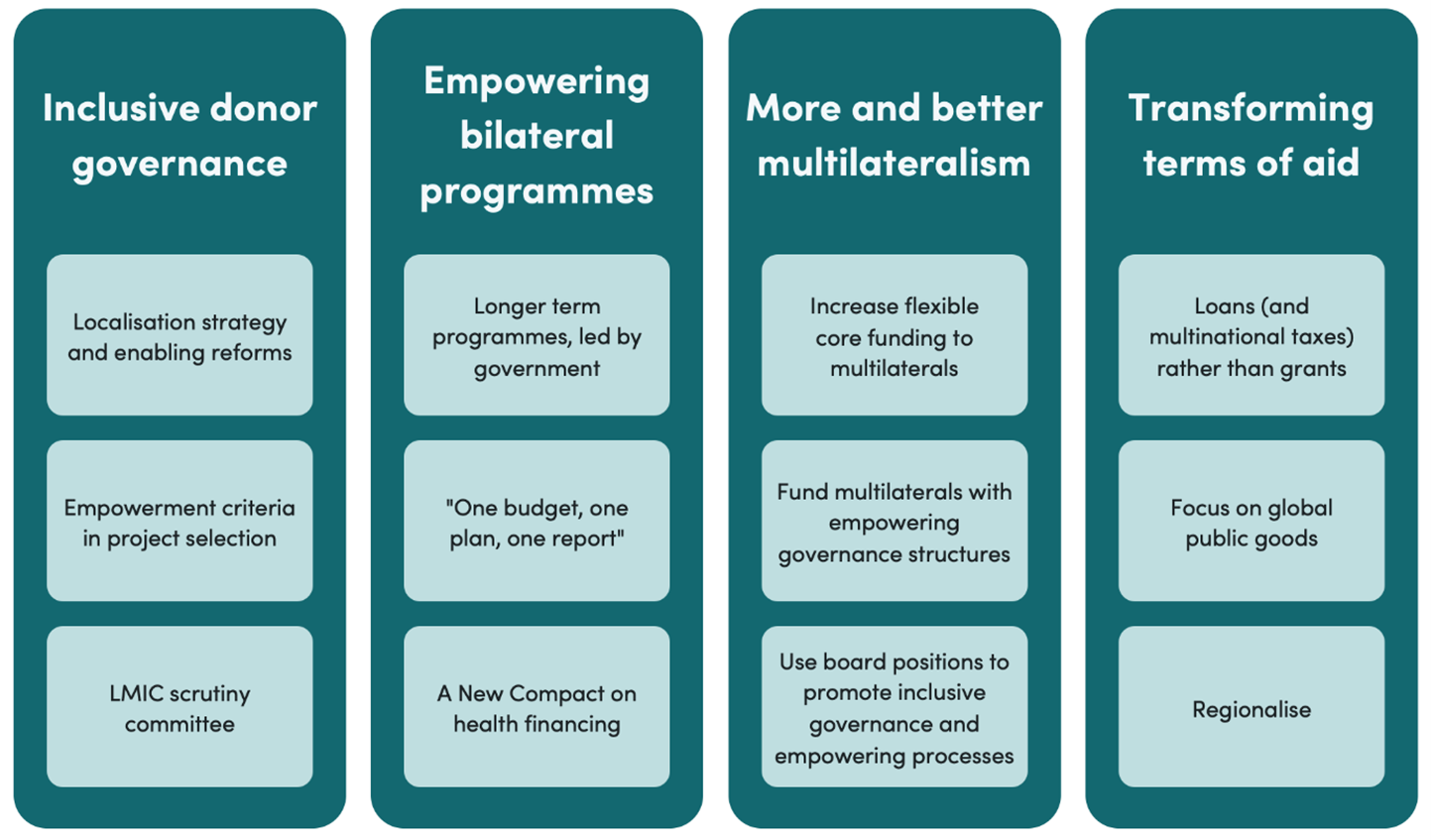November 21, 2011
This is a joint post with Rita PerakisNext week about 2,700 delegates from around the world will gather in Busan, Korea to talk about aid effectiveness: whether there has been progress on aid reform since previous forums in Paris and Accra, and what ‘development cooperation’ (the term for ‘aid’ coming back into vogue) should look like going forward.Will anything at all be accomplished at the Busan High Level Forum on Aid Effectiveness to make the aid system better than it is? We wonder. Insiders generally acknowledge that progress has been modest at best. Only one of the thirteen targets in the Paris Declaration has been met (see Owen Barder’s tally). In the second edition of the Brookings-CGD Quality of ODA (QuODA) assessment released this week, we find slight improvements in donors’ performance but no clear sign of a positive trend. Karin Christiansen, head of Publish What You Fund, which released its Aid Transparency Index this week, says some donors are actually backtracking on their commitments. Copyright (c) 123RF Stock PhotosThe draft Busan outcome document covers important issues: improving transparency; increasing the accountability of donor and recipient governments, not just to each other but to their own citizens; cooperating more with the new donors such as China, India, Brazil, and Qatar. But because it falls far short on specifics it risks being a declaration of good intentions that is too vague to motivate any real change. (Simon Maxwell discusses this further and offers suggestions for how the document can be sharpened.)Despite all this, we hold out some hope that Busan will jumpstart more-than-marginal progress in an aid system still plagued by longstanding sins. We offer three sets of suggestions.First, two actions that all aid providers can and should take immediately:
Copyright (c) 123RF Stock PhotosThe draft Busan outcome document covers important issues: improving transparency; increasing the accountability of donor and recipient governments, not just to each other but to their own citizens; cooperating more with the new donors such as China, India, Brazil, and Qatar. But because it falls far short on specifics it risks being a declaration of good intentions that is too vague to motivate any real change. (Simon Maxwell discusses this further and offers suggestions for how the document can be sharpened.)Despite all this, we hold out some hope that Busan will jumpstart more-than-marginal progress in an aid system still plagued by longstanding sins. We offer three sets of suggestions.First, two actions that all aid providers can and should take immediately:
 Copyright (c) 123RF Stock Photos
Copyright (c) 123RF Stock Photos- Whether or not they have signed on to the International Aid Transparency Initiative (IATI), all donors should commit to reporting country-level disbursements for the previous three months – i.e. at a minimum every quarter. Reporting each quarter on how much in each country for what programs/projects, through what channels, and even where within countries (geo-mapping!) is not hard. Citizens and civil society groups in countries will make good use of this information. Having it will generate the feedback that critics like Bill Easterly and insiders too (see here and here) view as fundamental to making aid more effective. We urged this basic standard for aid transparency three years ago, before the High Level Forum in Accra. Should we be more hopeful this time?
- Donors should commit to more pilots of results-based aid. Results-based aid is no magic bullet. But it holds promise of building in country ownership and allows donors to support increased accountability of recipients to their own citizens rather than only to donors for tracking inputs. (For more on these advantages, see CGD’s work on Cash on Delivery Aid). There are some promising efforts: a DfID-Ethiopia pilot now in design stage is one such example. But results-based aid has not been easy for donors to accommodate, as the protracted discussion of the World Bank’s proposed results-based instrument shows. Enthusiasm for results-based aid is high among close and thoughtful observers of the aid system (see here and here). It’s time for decision makers to follow the lead of DfID, launch some experiments, and share what they learn.
- A common, shared reporting standard on evaluation and learning practices, including specific indicators that donors would submit to the OECD Development Assistance Committee (DAC) Creditor Reporting System. In the second edition of QuODA we include an indicator of donors’ evaluation policies. But we lack indicators of evaluation and learning practices. Busan delegates should ask DAC to report within a year on the new indicators and to implement a reporting system with donors and recipients.
- An agreed minimum standard on innovation effort, such as spending 1 percent of disbursements on innovative approaches. The talk about innovation in the draft outcome document is just that so far – talk. Donors should collectively commit to something concrete, and agree to a quantitative rule that they are bound to, based on a portion of their total disbursements each year.
Disclaimer
CGD blog posts reflect the views of the authors, drawing on prior research and experience in their areas of expertise. CGD is a nonpartisan, independent organization and does not take institutional positions.





